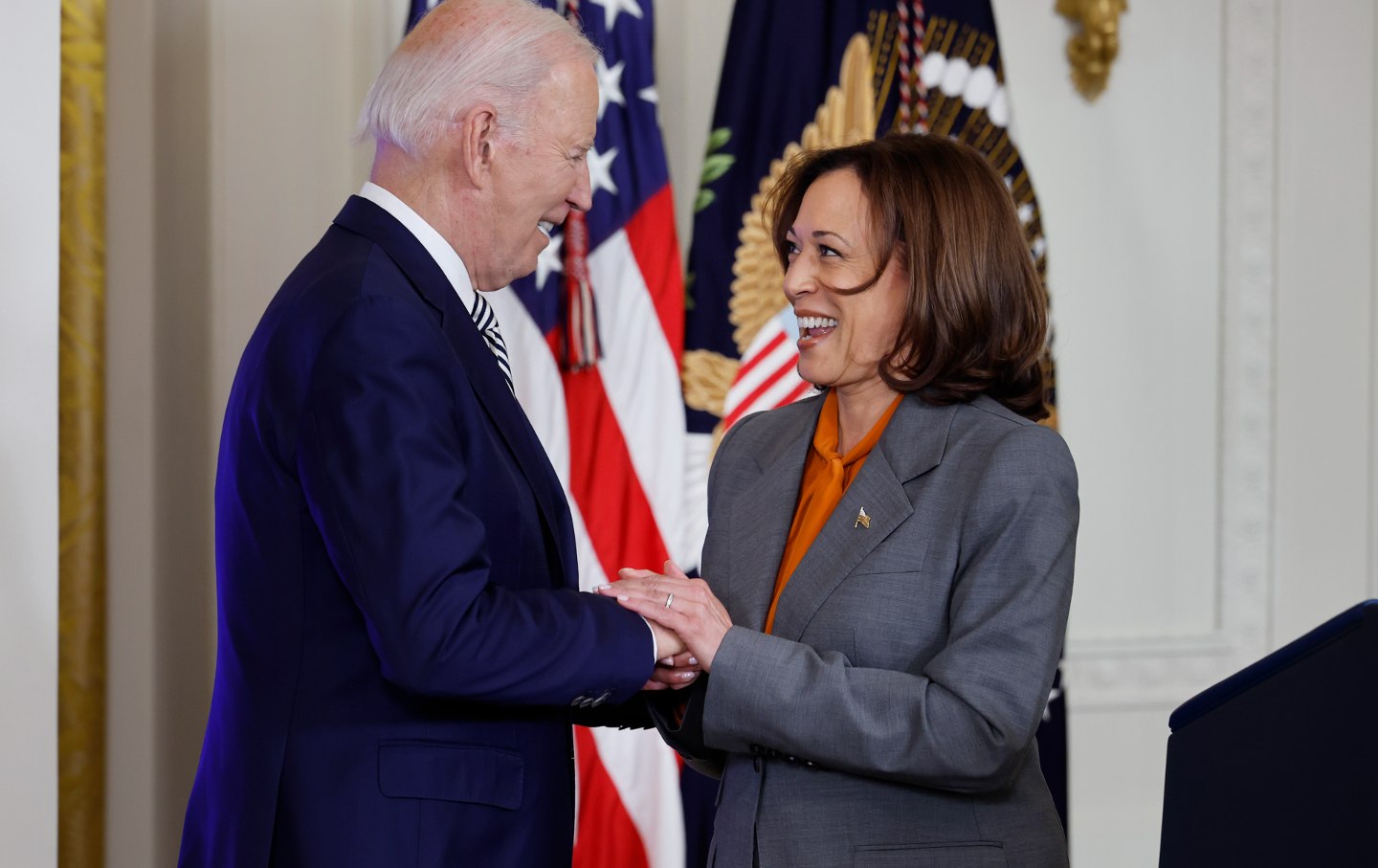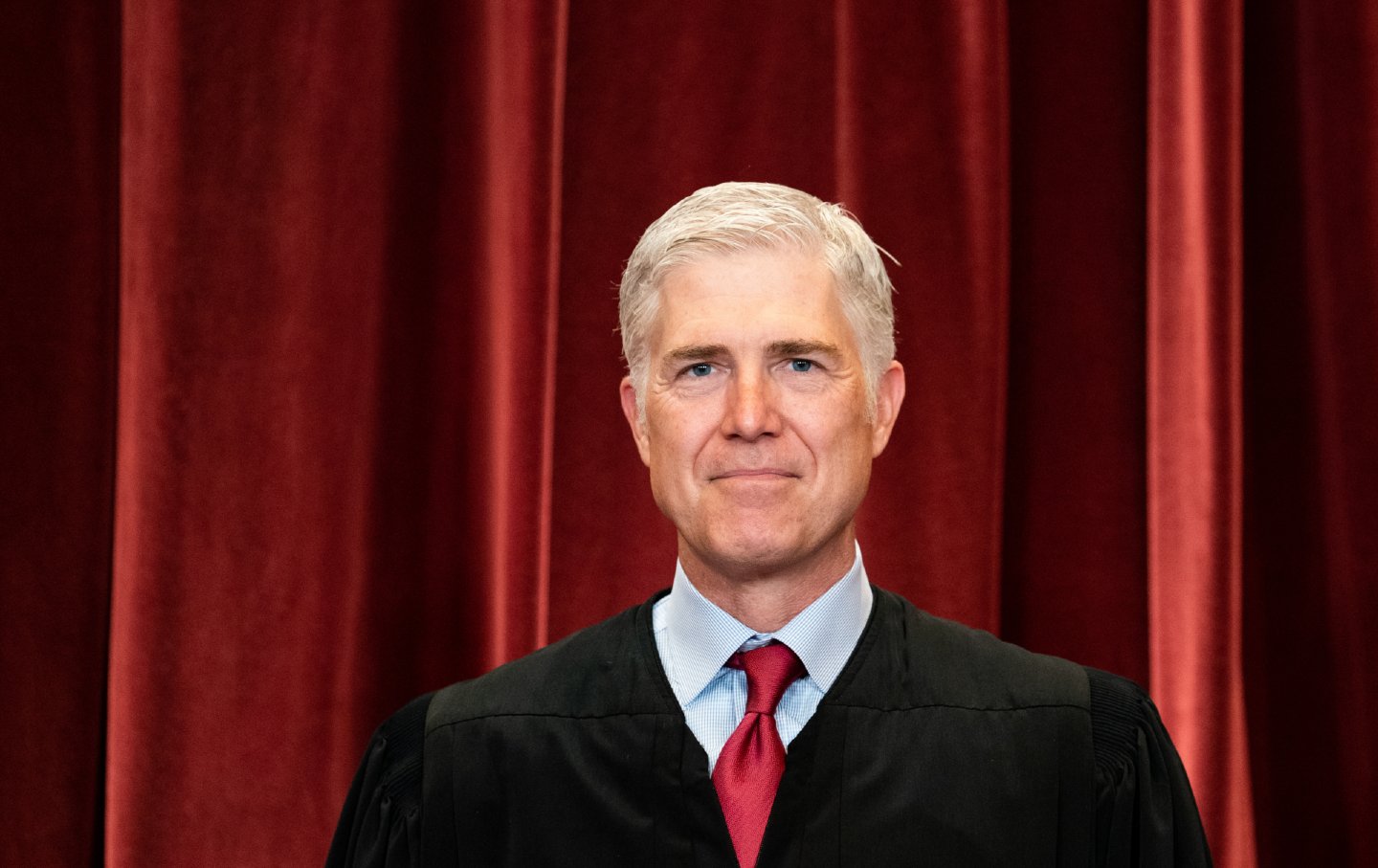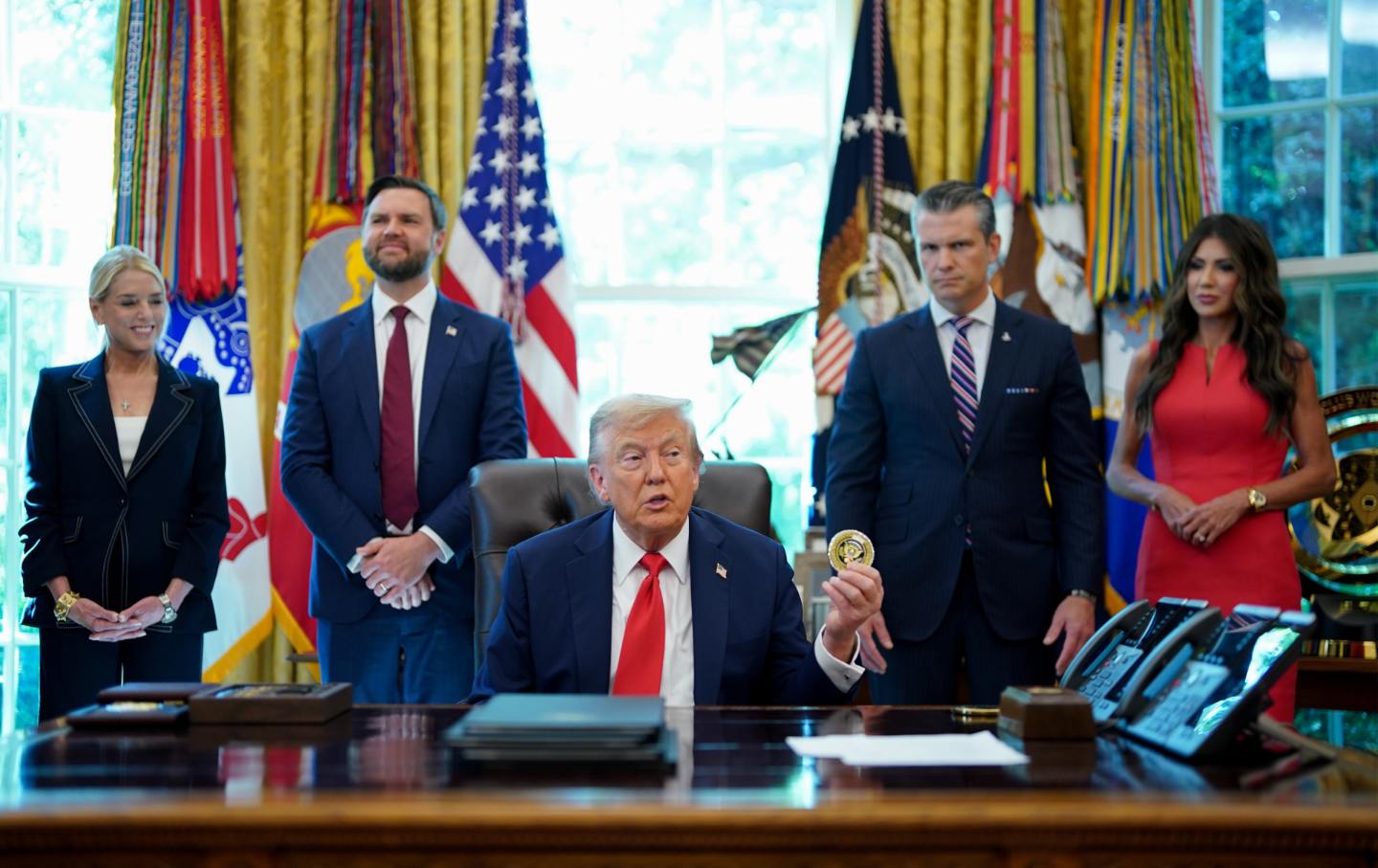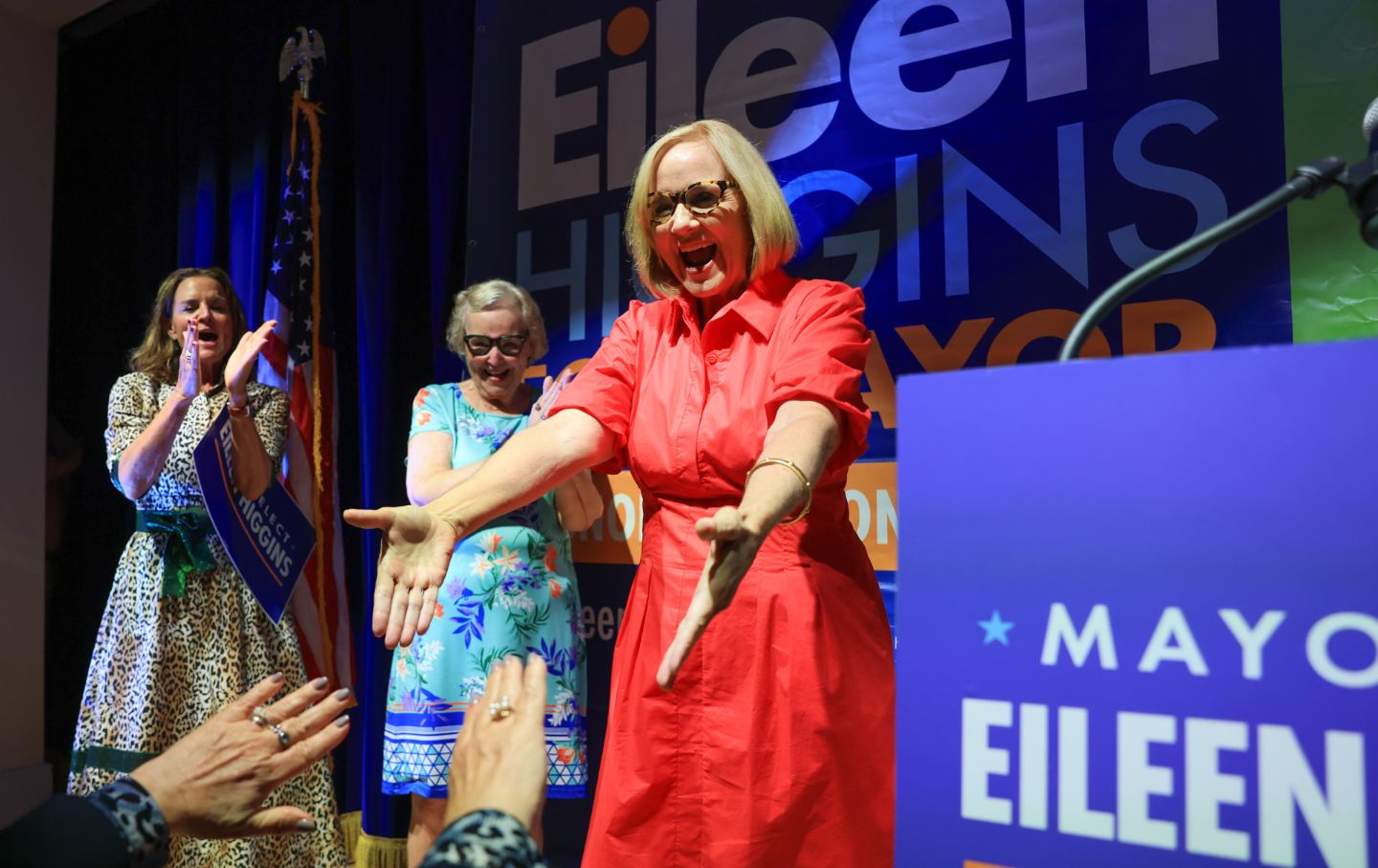Even Without a Contest at the Top of the Ticket, Voting in the Democratic Primary Still Matters
Joe Biden and the DNC have arranged a coronation, but what they don’t want you to know is that changing the rules is at least as important as choosing our rulers.

This year progressive activists are gearing up to elect “rulers” who can defeat right-wing politicians from the presidency on down the ballot. But if our aim is economic and social justice, we’d do better to focus on changing the rules—including the rules of the Democratic Party. Because even more important than the candidates we elect are the rules that determine whether real change is possible.
The United States is near the bottom compared to other global democracies in terms of voting rights, guards against the influence of money in politics, majority governance, and more. The candidates we elect pay scant attention to the minimal outcomes we achieve, largely because of the rules, which encourage them to focus instead on messaging. Senate rules, the Electoral College, the federal judiciary, voter registration hurdles, gerrymandering, legal and judicial limits on organizing and collective bargaining, Citizens United—all combine to discourage popular participation and activism. This means that the candidates who win under the current rules—our rulers—have little accountability to political organizations beyond their next election.
Democratic Party rules also play a major role in blocking progressive change, both at the national level and in the state parties. There are no limits on dark money in primaries; many state parties lack transparency in their governing structure; and same-day party registration for primary voting has never been enforced in many states, despite adoption by the DNC in 2018. (States like New York continue to make it difficult for millions of unaffiliated voters to participate in the primary, since they require party registration a month earlier by voters who are not already party-affiliated. Most are young—and in many states the default at registration is unaffiliated—but then party leaders in many states don’t actually want them voting in primaries, since they are more likely to vote against incumbents.)
Much more support is needed for the growing number of party members at all levels working to reform state parties, as well as the 50 or 60 Democratic National Committee (DNC) members, including many state chairs, still pushing for reform at the national level. Last year, despite a resolution submitted by about 10 percent of DNC members, the party leadership blocked any discussion of the record level of dark-money contributions that changed the outcomes of Democratic primaries, particularly for Congress. Sam Bankman-Fried alone illegally spent millions influencing who got to run for office as a Democrat—and he was just one of many big dark-money spenders, including other crypto tycoons, AIPAC, and a wide range of right-wingers and even liberal organizations.
Dark-money spending will likely be even greater this year, particularly in the majority of “Democratic” districts where there is a progressive incumbent and no meaningful Republican challenger. The primary provides a means for wealthy conservatives to block candidates who support issues such as imposing price caps on pharma, expanding Medicare, cutting the bloated military budget, opposing arming the right-wing Israeli government. Most Democratic political operatives and their media and legal consultants will continue to ignore the influence of dark money in primaries while they scoop it up.
More than a year ago, the DNC adopted new rules—including a primary calendar that ignored state law in Iowa and New Hampshire and eliminated any primary debates—designed to ensure that Biden’s coronation would proceed untroubled by opposition from any credible Democrat. Progressives should accept that at this point the rules now preclude any new candidates from entering presidential primaries; even if Biden were to drop out, he and his campaign advisors would still control the selection of a replacement. But for those of us who believe the Democratic Party is still the only viable channel for progressive change, the 2024 Democratic National Convention remains crucially important.
In both 2016 and 2020, led by Senator Bernie Sanders and his army of delegates, the convention adopted resolutions supporting a series of reforms, including practically eliminating the role of 750 or more superdelegates in the nominating process. Secretary Clinton agreed, after negotiating with Sanders, as did the Biden campaign in 2020—and in both cases Unity resolutions were adopted that remain in force through 2024. But unless the 2024 convention adopts a similar resolution, the DNC starts from scratch for 2028 and all the reforms gained by the Sanders forces—particularly those keeping superdelegates out of the nominating process—will expire, leaving the field to DNC insiders again.
Our Revolution and other organizations will be encouraging members to run in their states for convention delegate, pledged to Biden (party rules again ensure that nearly all elected delegates will be pledged to Biden) but supporting party reform and a progressive platform. Each state has its own delegate selection plan, easily searchable with deadlines varying over the next several months. Progressive House and Senate members, and many state party chairs will again be supporting this effort, and pressuring the Biden campaign for support including on such progressive platform items from 2020 as reducing prices on a wider range of prescription drugs, eliminating carbon from power plants, and a path to citizenship for most immigrants. Unity cannot simply be based on defeating Trump—as vital as that may be—but also on the recognition that progressives continue to be vital to party success in 2024.
Each state party has its own process, but it often begins with presidential delegate selection, with those same delegates comprising at least part of the state party decision making structure. In states where reformers from the Sanders campaigns, and others, have engaged and contended for leadership—including Washington, Oregon, Arizona, as well as smaller states like Nebraska, Alaska, and Wyoming—significant change has occurred. But New York, New Jersey, and other Eastern and Southern states are at the other extreme. For example, in New York in 2021, when democratic socialist India Walton defeated Buffalo’s incumbent mayor in the party primary, the state party chair led a write-in campaign to defeat her—in direct violation of national party rules. But there was no sustained effort to remove him by the center-left groups that had supported Walton.
If our focus is progressive change at the federal level, Biden’s reelection, a Democratic House majority, more Progressive Caucus members, and a Senate Democratic majority are all important goals. The Senate Democratic caucus is finally prepared to actively consider changes to the filibuster that would result in debate and final passage by a simple majority—not the current 60-vote supermajority—on issues starting with voting rights and other democracy measures, but also including workers’ rights, pharma pricing, and other key parts of the progressive agenda. Again, this is party change at the Senate caucus level that until now has been impossible.
Change at the party level is essential given the constraints of the rules that currently bind us. It makes no sense to engage in primaries at the municipal, state, and federal levels and ignore the party processes that set the rules for those contests. Beyond the party, we need to focus on changing the wide range of rules that keep progressive governance perpetually out of reach. If we stay focused on governance—and those structural changes are linked to issue campaigns that will galvanize popular support—we have a much better chance for our politics to move beyond protest towards the power to genuinely change people’s lives.
Disobey authoritarians, support The Nation
Over the past year you’ve read Nation writers like Elie Mystal, Kaveh Akbar, John Nichols, Joan Walsh, Bryce Covert, Dave Zirin, Jeet Heer, Michael T. Klare, Katha Pollitt, Amy Littlefield, Gregg Gonsalves, and Sasha Abramsky take on the Trump family’s corruption, set the record straight about Robert F. Kennedy Jr.’s catastrophic Make America Healthy Again movement, survey the fallout and human cost of the DOGE wrecking ball, anticipate the Supreme Court’s dangerous antidemocratic rulings, and amplify successful tactics of resistance on the streets and in Congress.
We publish these stories because when members of our communities are being abducted, household debt is climbing, and AI data centers are causing water and electricity shortages, we have a duty as journalists to do all we can to inform the public.
In 2026, our aim is to do more than ever before—but we need your support to make that happen.
Through December 31, a generous donor will match all donations up to $75,000. That means that your contribution will be doubled, dollar for dollar. If we hit the full match, we’ll be starting 2026 with $150,000 to invest in the stories that impact real people’s lives—the kinds of stories that billionaire-owned, corporate-backed outlets aren’t covering.
With your support, our team will publish major stories that the president and his allies won’t want you to read. We’ll cover the emerging military-tech industrial complex and matters of war, peace, and surveillance, as well as the affordability crisis, hunger, housing, healthcare, the environment, attacks on reproductive rights, and much more. At the same time, we’ll imagine alternatives to Trumpian rule and uplift efforts to create a better world, here and now.
While your gift has twice the impact, I’m asking you to support The Nation with a donation today. You’ll empower the journalists, editors, and fact-checkers best equipped to hold this authoritarian administration to account.
I hope you won’t miss this moment—donate to The Nation today.
Onward,
Katrina vanden Heuvel
Editor and publisher, The Nation








